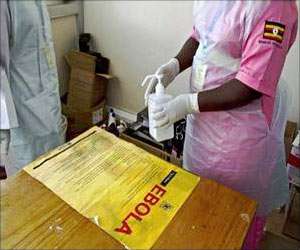
Presenting updated WHO guidelines on the use of personal protective equipment, or PPE, he said health care workers contracting Ebola on the job were not doing so because they made the wrong choice of gear.
"It's the way that PPE has been put on and taken off," he told reporters, stressing the importance of in-depth training and clear systems in which health care workers always have a colleague watching and guiding their dressing and undressing.
While WHO's guidelines call for full-body covering for people working with Ebola patients, they provide some leeway, for instance giving the choice between using a face shield or goggles and between wearing a gown or coveralls.
WHO's updated guidelines call for the use of a surgical mask that does not collapse against the mouth and for double gloves, preferably not made of allergy-provoking latex.
When dealing with Ebola, which in the ongoing outbreak centred in West Africa has killed some 5,000 people, protection of the eyes, nose and mouth was particularly vital, Kelley said.
Advertisement
Bans on bringing electronic equipment into the treatment room was also important, he said, pointing to reports of doctors who without thinking picked up their ringing phone with a gloved hand that had just touched a patient.
Advertisement
Since the ongoing outbreak began in Guinea late last year, the agency has moved around one million sets of protective gear and is now buying around 500,000 sets each month, spokesman Tarik Jasarevic said.
Source-AFP










